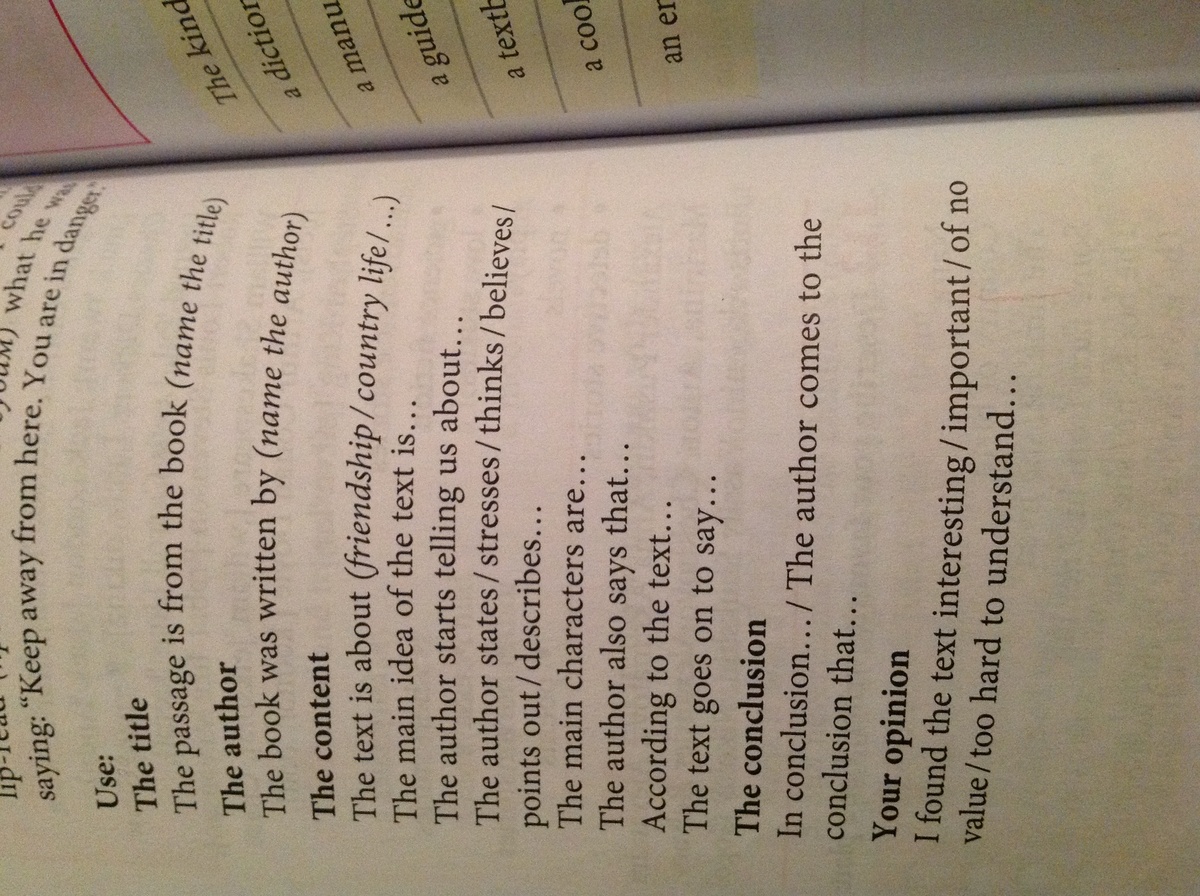Написать сочинение по английскому про любимую книгу по этому плану:

Ответы
The Collector
The Collector by John Fowles was first published in 1963 and is a kind of a harror story.It is one of the best and most fasinating books I have ever read.It holds your attention from the very beginning and becomes more and more shocking as the story unfolds.
The main character is Frederick Clegg , a lonely young man, who works as a clerk in a city hall.Clegg collects buttereflies and is obsessed with Miranda Grey, an art student.He admires her from afar, fascinated by her every move, but he is unable to make any contact with her.He is too shy.
The turning point in the story is when Clegg wins a lot of money and desides to make his dreams come true. He buys a remote country cottag e, kidnaps Miranda and keeps hr there to admire her and her and make her love him.He wants to take photographs of her because she is his latest and most precious 'butterfly'.
One of themost interesting aspects of the story is the portayal of Miranda.She tries to find a way out from the strange situation she finds herself in but she is very confused.She goes from one extreme to the other, from trying to understand Frederick to thinkingof killing him.In th end she falls ill, probably with pneumonia and dies.Clegg does nothing to help her.
The Collevtor evokes a number of different emotions in the readr.You try to understand Clegg.You sympathise with Miranda.You wonder how the story will end. This is a book which , once you have started, is impossible to put down.